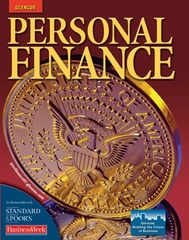Assignment Question(s): (Marks 5) Q1. Alfa Company is issuing eight-year bonds with a coupon rate of 6.5 percent and semiannual coupon payments. If the current market rate for similar bonds is 8 percent, what will be the bond price? If the company wants to raise $1.25 million, how many bonds does the firm have to sell? I mark Q2. Suppose a 3 year bond with a 6% coupon rate that was purchased for $760 and had a promised yield of 8%. Suppose that interest rates increased and the price of the bond declined. Displeased, you sold the bond for 798.8 after having owned it for 1 year. What is the realized yield ? 1 mark Q3. Ahmed is interested in purchasing the common stock of Inch, Inc., which is currently priced at $ 40. The company is expected to pay a dividend of S3 next year and to grow at a constant rate of 8 percent. 1.5 marks a. What should the market value of the stock be if the required rate of return is 15.75 percent? b. Is this a good buy? Why or why not? Q4. Case Study: 1.5 marks Deepwater Horizon Rig Disaster Threatens Drilling British Petroleum (BP) is an oil exploration and production company that encourages high risk projects with the potential for high return. Last summer the company's exploration and production chief, Andy Inglis, is quoted as saying, "We don't do simple things. We are prepared to work on the frontier and manage the risks." So far that strategy has paid off for BP. Now that strategic decision is being called into question. BP's earnings for the quarter ending March 31, 2010 were $5.6 billion; more than double what they were five years ago. However, a recent deepwater drilling rig accident in the Gulf of Mexico killed eleven employees and has spewed over three million barrels of oil into the ocean with no real end in sight. The company's disaster is threatening one of the most productive fisheries in the world and the fragile Gulf coosystem. From BP's perspective the disaster may also be threatening the company's future. If the spill is not contained soon it may mark the end of Gulf exploration and drilling. The practice may be deemed too risky, both politically and environmentally. For a company that has staked much of its future on the Gulf, it may also signal the end of BP. Investors are abandoning BP and the company has lost over $30 billion in market capitalization since the disaster Multiple Choice Questions: 1. Higher risk projects should be evaluated using discount rates. a. the same b. higher c. lower d. there is no relationship between risk and discount rate British Petroleum (BP) is an oil exploration and production company that encourages high risk projects with the potential for high return. Last summer the company's exploration and production chief, Andy Inglis, is quoted as saying, "We don't do simple things. We are prepared to work on the frontier and manage the risks." So far that strategy has paid off for BP. Now that strategic decision is being called into question. BP's carnings for the quarter ending March 31, 2010 were $5.6 billion; more than double what they were five years ago. However, a recent deepwater drilling rig accident in the Gulf of Mexico killed eleven employees and has spewed over three million barrels of oil into the ocean with no real end in sight. The company's disaster is threatening one of the most productive fisheries in the world and the fragile Gulf ecosystem. From BP's perspective the disaster may also be threatening the company's future. If the spill is not contained soon it may mark the end of Gulf exploration and drilling. The practice may be deemed too risky, both politically and environmentally. For a company that has staked much of its future on the Gulf, it may also signal the end of BP. Investors are abandoning BP and the company has lost over $30 billion in market capitalization since the disaster. Multiple Choice Questions: 1. Higher risk projects should be evaluated using discount rates. a. the same b. higher c. lower d. there is no relationship between risk and discount rate 2. Ultimately concern over BP's is pushing many investors to sell the company's stock. a future cash flow b. business model c. management d. none of the above 3. The process of investing money for the firm with the expectation of generating positive returns is known as a capital budgeting b. risk taking c. capital structure d. none of the above








